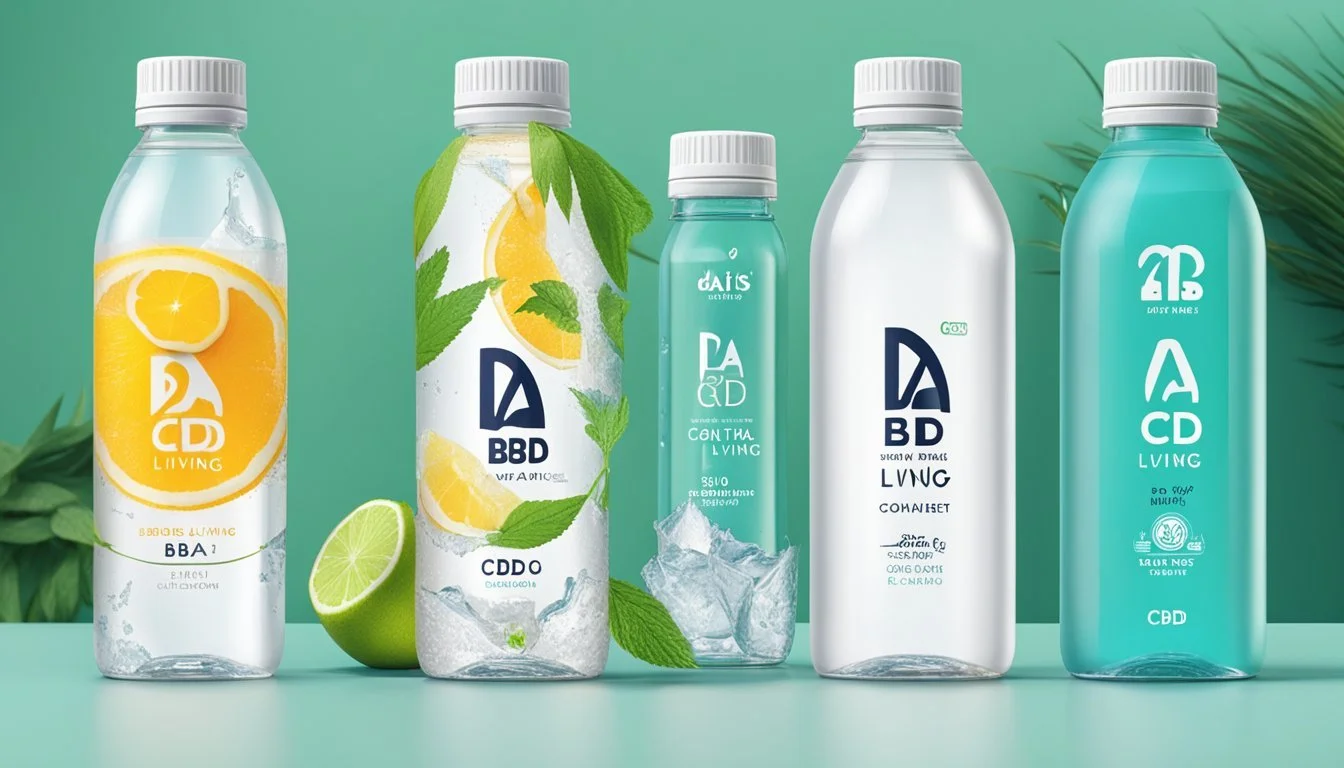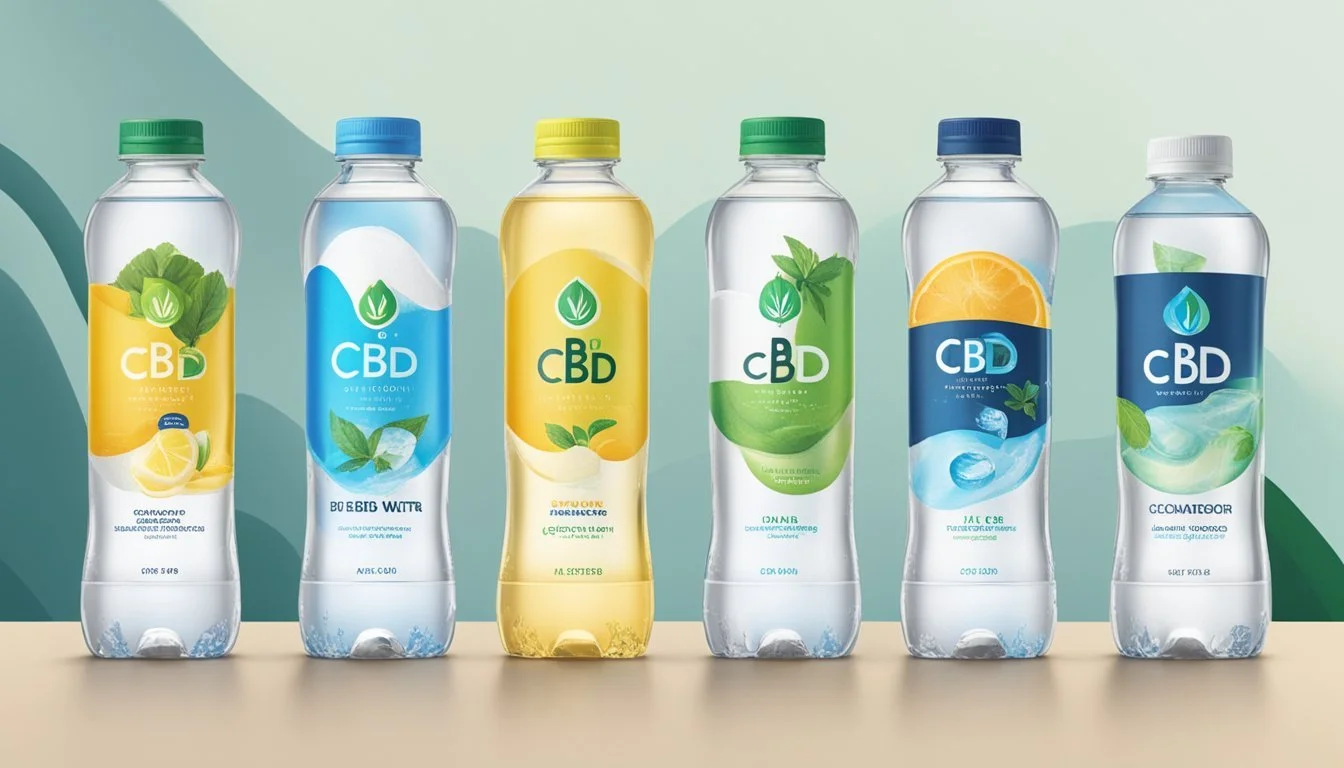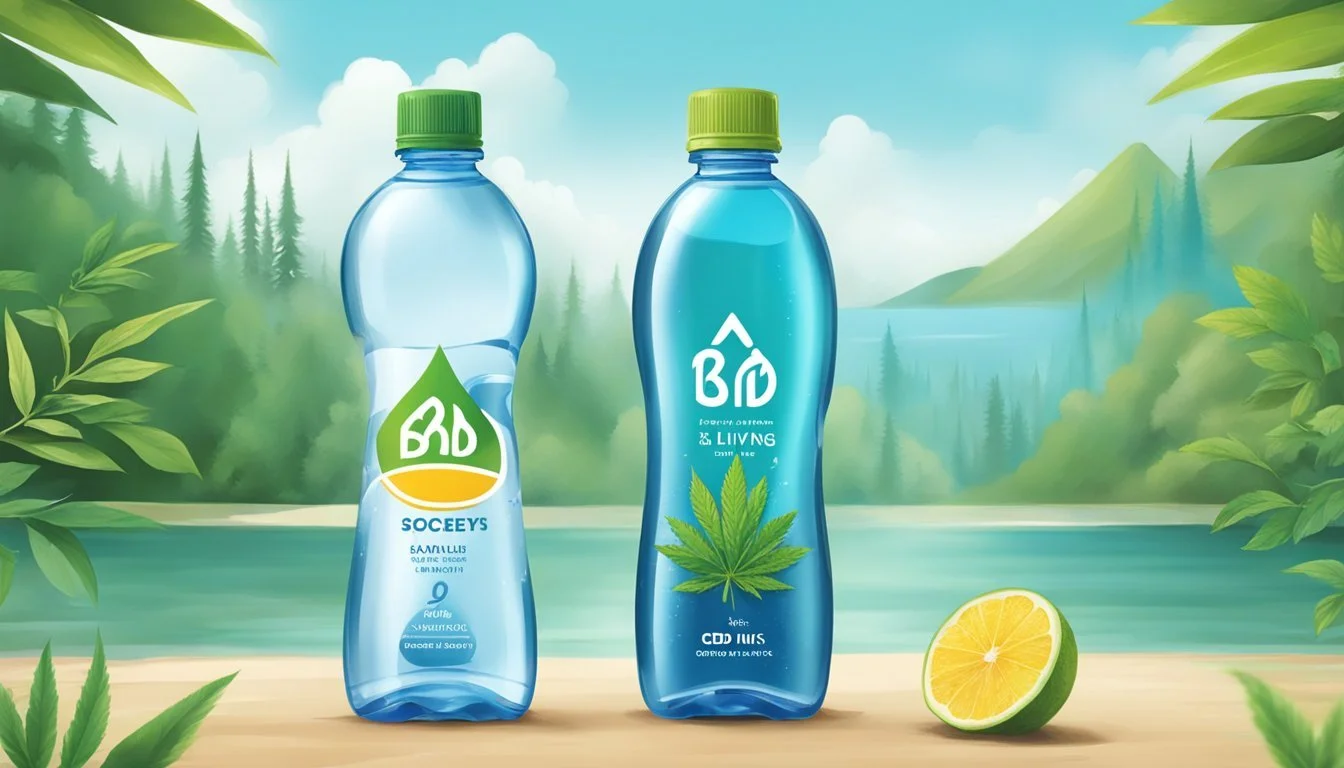Bai vs. CBD Living
A Comparative Review of Bottled Water Choices
When comparing bottled waters, it's important to consider various factors such as taste, health benefits, and added features. Bai stands out with its infusion of antioxidants and vitamins, making it a popular choice for those seeking more than just hydration. Featuring only ten calories per bottle and natural ingredients, Bai offers a flavorful yet health-conscious option.
On the other hand, CBD Living brings something unique to the table with its infusion of CBD. Each bottle contains a specific dosage of CBD, catering to those looking for potential stress relief and wellness benefits. Alongside being calorie-free, CBD Living offers a different kind of health benefit, appealing to a niche market interested in CBD-infused beverages.
Choosing between Bai and CBD Living ultimately depends on personal preference and health goals. For those focused on antioxidants and vitamins, Bai provides a compelling option. If the wellness benefits of CBD are a priority, CBD Living could be the better choice. Both brands definitely offer distinctive qualities that can fulfill various hydration and health needs.
The Bai Brand Overview
Bai offers a variety of flavored beverages known for their antioxidant content and minimal calorie count. Through its unique ingredients and commitment to health, Bai has carved a niche in the bottled water market.
History and Mission Statements
Bai was founded by entrepreneur Ben Weiss in 2009. The brand emerged with the intention of providing healthier beverage alternatives. Its name, "Bai," translates to "pure" in Mandarin, reflecting the company's focus on natural ingredients. From its inception, Bai's mission has been to deliver great-tasting, low-calorie beverages without artificial sweeteners. This vision positions Bai as an advocate for healthy hydration.
Product Range and Flavors
Bai's product line includes a wide variety of flavors, combining antioxidants with natural sweeteners. Popular options include Brasilia Blueberry, Kula Watermelon, and Costa Rica Clementine. These beverages, often branded as "Antioxidant Infusions," offer flavor without high sugar content. Each serving typically contains only ten calories and 1 gram of sugar.
Bai also features products like Bai Bubbles and Bai Supertea, extending its flavor offerings to sparkling drinks and tea-based beverages. These products maintain the brand's commitment to natural ingredients and low-calorie counts.
Unique Selling Propositions
Bai's unique selling points stem from its infusion of antioxidants and focus on natural ingredients. The beverages incorporate extracts from coffee fruit and tea, which are rich in antioxidants. This infusion is a key differentiator, aimed at health-conscious consumers.
The low-calorie count of Bai drinks is another significant factor, appealing to those looking to reduce sugar intake without sacrificing flavor. Bai avoids artificial sweeteners, using ingredients like stevia and erythritol instead, which contribute to its health-focused appeal.
Bai's vibrant and diverse flavor options, combined with its health benefits, make it stand out in a crowded market. These factors contribute to its reputation as a balanced, tasty, and healthy beverage choice.
CBD Living Brand Overview
CBD Living is a prominent brand known for its innovative use of nanotechnology in its CBD products. They offer a variety of CBD-infused water and other wellness products aiming to enhance the user experience through advanced formulation techniques.
Company History and Values
Founded in 2013, CBD Living quickly established itself as a leader in the CBD industry. The company prides itself on using 100% organic hemp from compliant farms in the United States. Their mission revolves around making high-quality CBD products accessible to a broad audience, focusing on transparency and customer trust.
CBD Living emphasizes innovation and science, integrating research and development into their core values. The company is committed to environmentally sustainable practices and ensures that their products are cruelty-free and third-party lab tested for purity and potency.
CBD Water and Product Offerings
CBD Living's flagship product, CBD Living Water, is formulated with 10 mg of nano-CBD per bottle. This water is notable for its alkaline properties, with a pH level of 9+, which is believed to help balance body acidity. CBD Living Water is also available in various flavors, such as Lemon Lime and Peach, catering to different taste preferences.
In addition to their popular water, CBD Living offers a wide range of other products, including tinctures, gummies, and topicals. Each product is designed to deliver the benefits of CBD in a convenient, easy-to-use form. This variety allows customers to choose the product that best fits their lifestyle and wellness goals.
Technological Advantages
CBD Living sets itself apart through the use of nanotechnology. This advanced process reduces the CBD molecules to a tiny size, enabling quicker and more efficient absorption into the bloodstream. This ensures that users receive maximum benefits from each dose.
Nanotechnology also enhances the bioavailability of CBD, meaning that a higher percentage of the CBD is utilized by the body. This cutting-edge approach is a significant draw for consumers looking for faster and more effective relief from their CBD products.
By continuously refining their nanotechnology and product formulations, CBD Living remains at the forefront of the CBD industry, offering innovative solutions that meet the evolving needs of their customers.
Health and Wellness Impact
Comparing Bai and CBD Living Water reveals significant differences in their contributions to health and wellness. While Bai focuses on hydration with added antioxidants, CBD Living Water emphasizes the health benefits linked to CBD.
Nutritional Benefits and Health Claims
Bai Water boasts low calories and minimal sugar content. Each bottle contains only 10 calories and 1 gram of sugar. Bai is rich in antioxidants derived from coffee fruit extract and tea extract, which are believed to combat oxidative stress and promote better health. Additionally, it is free from artificial sweeteners and gluten, making it suitable for those with dietary restrictions.
CBD Living Water, on the other hand, contains cannabidiol (CBD), extracted from hemp. This CBD-infused water is touted for its potential to alleviate anxiety, promote relaxation, and improve sleep quality. It doesn't add significant calories or sugars to the diet. Combining hydration with the potential benefits of CBD, it aims at offering a multifunctional beverage option.
Potential Side Effects and Considerations
While Bai Water is generally safe to consume, one should be aware of its caffeine content, although it is relatively low. Consuming Bai in moderation is advisable for those sensitive to caffeine or looking to limit their intake.
CBD Living Water’s primary consideration is its CBD content. Although generally well-tolerated, CBD can cause side effects in some individuals. These might include dry mouth, fatigue, and changes in appetite. It's also crucial to consider interactions with certain medications, which is why consulting with a healthcare provider before incorporating CBD products into the routine is recommended.
Analysis of Health Benefits
Bai Water’s antioxidants contribute to reducing oxidative stress, which is associated with a variety of chronic conditions. Its low-calorie, low-sugar profile makes it a healthier choice for those monitoring their caloric intake. These health-positive attributes make Bai a beneficial option for maintaining wellness.
CBD Living Water’s appeal lies in its cannabidiol content, known for its potential therapeutic effects. CBD has been researched for its impact on anxiety, inflammation, and sleep disorders. Providing these benefits in a convenient water form addresses both hydration and specific wellness needs, positioning it as a functional beverage in the growing wellness market.
Taste and Hydration Experience
Bai and CBD Living both offer unique attributes in terms of flavor and hydration. Bai is known for its antioxidant-infused flavored beverages, while CBD Living incorporates CBD for potential wellness benefits.
Flavor Profiling and Ingredients
Bai has a diverse flavor profile, with options like mango, blueberry, and coconut. Its beverages contain antioxidants from coffee fruit extract and are sweetened naturally with stevia.
CBD Living's water maintains a more neutral taste, focusing on purity with the addition of nano-CBD for those interested in its potential therapeutic effects.
Despite its focus on health, Bai's flavor choices are more varied, offering a more engaging taste experience, whereas CBD Living keeps it simple.
Hydration Benefits and Efficacy
Bai includes vitamin C and antioxidants, which may provide additional health benefits. Its hydration qualities are complemented by electrolytes, enhancing the overall experience.
CBD Living offers hydration with a twist, as it includes nano-CBD. This addition may provide unique wellness benefits, though hydration efficacy remains aligned with standard bottled water.
Readers interested in both hydration and potential wellness effects might find CBD Living appealing for its added CBD, while those focused on flavor and extra vitamins may prefer Bai.
Safety and Quality Standards
Both Bai and CBD Living ensure their products meet stringent safety and quality standards for consumer confidence and health benefits.
Certifications and Regulatory Compliance
Bai and CBD Living comply with U.S. Food and Drug Administration (FDA) regulations, ensuring their bottled water is safe for consumption. The FDA mandates that bottled water must be free from contaminants and meet standards similar to those of the Environmental Protection Agency (EPA) for tap water.
Bai primarily focuses on flavored, antioxidant-infused beverages, whereas CBD Living adds CBD for potential health benefits. Both brands are expected to provide a Certificate of Analysis (CoA) to verify product purity and ingredient accuracy.
Review of Contaminants and Additives
Bai and CBD Living rigorously test for harmful substances. Bottled water must be free from heavy metals like lead, arsenic, and mercury. Both brands also test for synthetic chemicals, such as PFAS, ensuring safety for consumers.
Bai's emphasis is on purity combined with flavored additives, typically free from artificial substances. CBD Living includes CBD as an additive, requiring additional scrutiny to confirm the absence of THC and other contaminants, providing a transparent ingredient profile to maintain consumer trust.
Environmental and Social Responsibility
Evaluating the environmental and social responsibility of Bai and CBD Living involves looking at their sustainability initiatives and packaging strategies.
Sustainable Practice Initiatives
Bai emphasizes its commitment to minimizing environmental impact through various initiatives. They source water sustainably and actively work to reduce the carbon footprint of their operations. Bai also infuses its beverages with coffee fruit extract, which is a byproduct that would otherwise go to waste, highlighting a resource-efficient approach.
CBD Living also engages in sustainable practices, sourcing their water carefully to ensure minimal environmental disruption. Moreover, they focus on responsible production methods that aim to conserve natural resources. By incorporating hemp-derived CBD, they utilize a plant known for its versatility and lower environmental footprint compared to many traditional crops.
Packaging and Environmental Impact
Bai uses recyclable plastic bottles and makes an effort to decrease plastic usage in their packaging. They have initiatives in place to promote recycling and reduce plastic waste, but it’s crucial to consider the overall impact of single-use plastics within the bottled beverage industry.
CBD Living prioritizes eco-friendly packaging methods. They incorporate recyclable materials and also offer larger, multi-serving options to reduce the number of bottles used by consumers. This strategy helps lessen the environmental burden associated with plastic waste and aligns with broader sustainability goals.
Both brands show a commitment to environmental stewardship through their sourcing and packaging efforts. However, the difference lies in how comprehensive and effective each brand’s initiatives are in reducing their environmental footprint and promoting sustainable practices.
Customer Experience and Brand Loyalty
Both Bai and CBD Living water brands offer unique attributes that attract consumer loyalty. Key factors include the variety of flavors, nutritional benefits, and customer feedback.
Consumer Testimonials and Feedback
Bai Water enjoys positive reviews for its flavored options, which appeal to those seeking a tasty hydration alternative. Consumers appreciate its low-calorie content, with only ten calories per bottle, and the presence of antioxidants derived from coffee fruit and tea extracts. Bai's commitment to not including artificial sweeteners has also been noted as a significant plus. This combination of health-conscious choices and flavor variety has built a loyal customer base.
CBD Living Water is praised for its infusion of 10 mg of organic CBD, offering a unique blend of hydration and potential wellness benefits. Reviews often highlight the refreshing quality of the water and the perceived calming effects of CBD. The natural flavors, such as Lemon Lime and Blackberry, enhance the drinking experience without adding sugars. CBD Living customers are drawn to the product for both its functional and flavorful aspects, creating a distinct brand loyalty.
Analysis of Repeat Consumer Trends
When examining repeat consumer trends, Bai seems to have a strong following due to its accessibility and visibility in grocery stores and online. The brand's extensive flavor options and health-centric formulation attract regular buyers. Bai's strategic placement and consistent quality make it a staple choice for those looking for a healthy and enjoyable hydration option.
CBD Living Water, while often pricier at $3.99 per bottle, retains customers due to its niche appeal and perceived therapeutic benefits. The premium price point does not deter loyalists who prioritize the potential wellness effects of CBD. This dedicated consumer segment often values CBD Living for its dual role as a hydrating and relaxing beverage, highlighting its unique market position compared to standard bottled waters like Smartwater or Recess.







